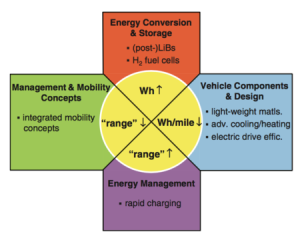Few of us are lucky enough to have a green thumb. The perfect balance of sunlight, climate, and water requires a special, intuitive touch. A little too much water, a little too little, and turns into gunk or withers. A little too much sun, a little too little, and wastes away and shrivels. And, so it goes.
Well, gardening just got a little easier. According to Inhabitat, students at University College London’s Interactive Architecture Lab have designed a nomadic, self-driving, and self-cultivating garden named Hortum machina, B. Like an autonomous car, the mobile garden responds to the environment, in this case, moving towards or away from sunlight, shade, and unhealthy levels of air pollution, as needed. (more…)




